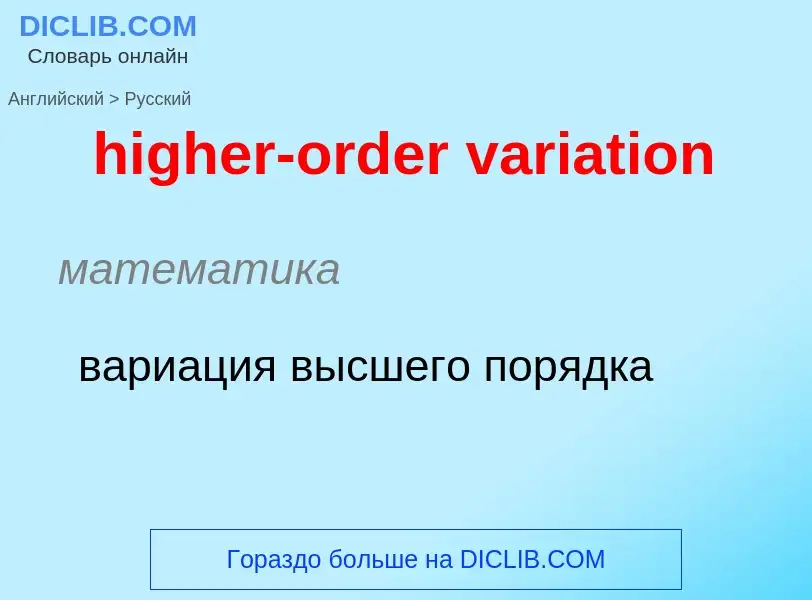Translation and analysis of words by artificial intelligence
On this page you can get a detailed analysis of a word or phrase, produced by the best artificial intelligence technology to date:
- how the word is used
- frequency of use
- it is used more often in oral or written speech
- word translation options
- usage examples (several phrases with translation)
- etymology
higher-order variation - translation to russian
математика
вариация высшего порядка
математика
предикат высшего порядка
[ve(ə)ri'eiʃ(ə)n]
общая лексика
вариация
изменчивость
изменение
вариационный
варьирование
колебание
колебательность
магнитное склонение
неравномерность
отклонение
разновидность
ход зависимости
нефтегазовая промышленность
отклонение (от номинальной величины)
Смотрите также
существительное
общая лексика
изменение
перемена
варьирование
колебание
разновидность
вариант
отклонение
изменение, перемена
склонение магнитной стрелки
специальный термин
вариация
физика
магнитное склонение
грамматика
флексия
биология
аберрация
генетическая изменчивость
мутация
Definition
Wikipedia
In mathematics and logic, a higher-order logic is a form of predicate logic that is distinguished from first-order logic by additional quantifiers and, sometimes, stronger semantics. Higher-order logics with their standard semantics are more expressive, but their model-theoretic properties are less well-behaved than those of first-order logic.
The term "higher-order logic", abbreviated as HOL, is commonly used to mean higher-order simple predicate logic. Here "simple" indicates that the underlying type theory is the theory of simple types, also called the simple theory of types (see Type theory). Leon Chwistek and Frank P. Ramsey proposed this as a simplification of the complicated and clumsy ramified theory of types specified in the Principia Mathematica by Alfred North Whitehead and Bertrand Russell. Simple types is nowadays sometimes also meant to exclude polymorphic and dependent types.

